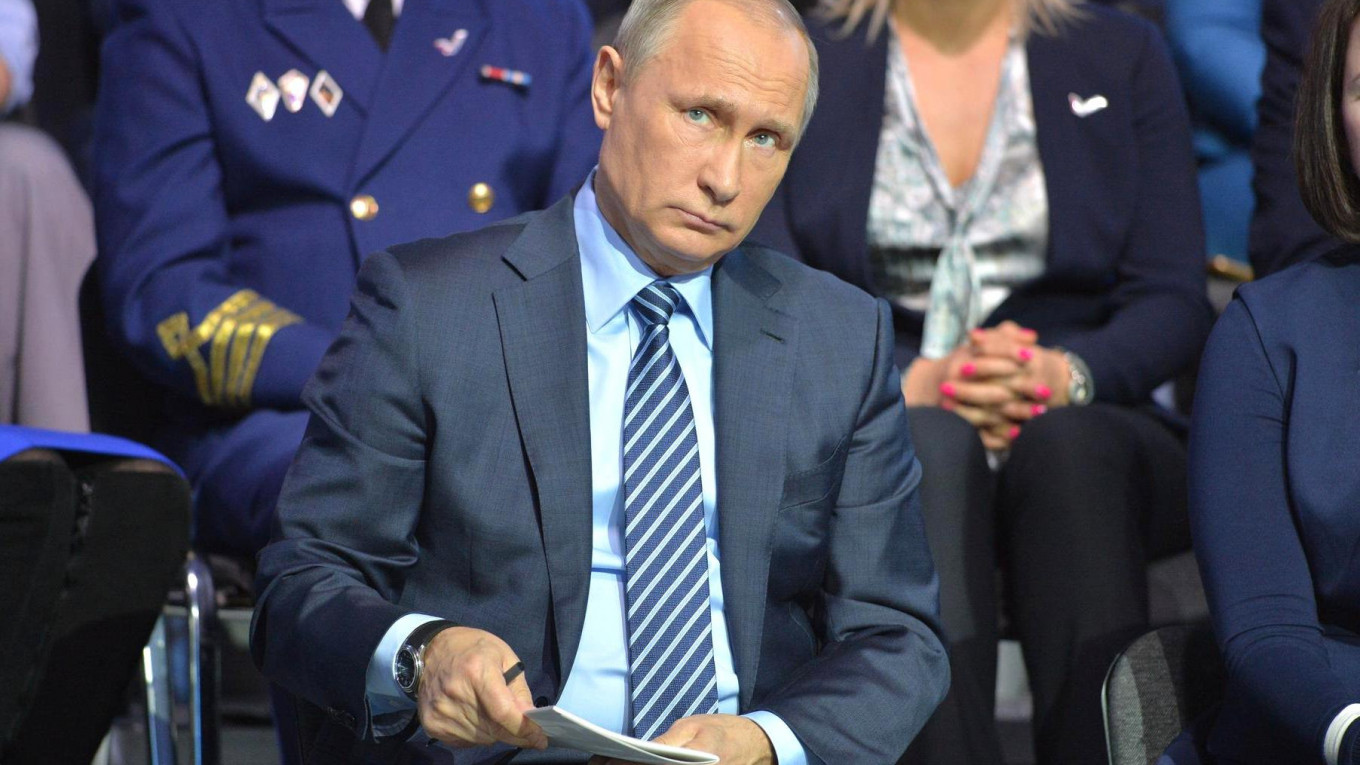Every time President Vladimir Putin hints about leaving, the world listens. Rumors have long been circulating around Moscow that Russia’s great leader may, in fact, be considering leaving office. Russia’s 2018 presidential election, Putin’s fourth in last 17 years, is just 15 months away.
So when Putin unexpectedly told gathered workers of the Rosano metal plant in the Urals city of Chelyabinsk that he hoped to have a “successful retirement,” local political gossip went into overdrive.
And Putin did not stop at that. Addressing the Soviet-style staged meeting, the president revealed that he “dreamt of traveling, [...] of looking at nature and historical sites.
It would be an altogether different way of seeing the world, he suggested.
“Now, all my traveling is reduced to moving from one airport to another room somewhere else,” he said. “I was in Peru recently. Well, what did I see? An airport, another building, and then back to Moscow. And there are things to look at in Peru.”
While it is wise not to read too much into Putin’s responses, analysts say they offer some glimpses into his state of mind.
“Of course, he should be thinking about his retirement,” says Russian political historian Valery Solovei. “His ‘dream of free traveling’ suggests two things: he wants to be in good shape when he retires, and he wants Russia to be on good terms with the rest of the world.”
Russia’s establishment has given few clues about any impending switch, and indeed seems to be gearing up for Putin’s reelection in March, 2018. “Everything is going according to plan,” confirms elections guru Yevgeny Minchenko.
A number of changes have been made inside the highest echelons of the presidential administration, all believed to pave the road for a smooth election in 2018. A new team led by Alexei Kudrin, Russia’s former finance minister, is working on a plan of economic reforms, which are believed to be at the center of Putin’s electoral campaign.
What are his reasons to stay? “Obvious,” says a former top official, speaking anonymously. “He’s in good shape, he has everything under control.” On face value, there is little impetus for Putin to leave. At home, his ratings remain at their highest they have ever been. Abroad, the onward march of populism, culminating in Trump’s unexpected victory in the United States, has broken the West’s anti-Putin front.
What might his reasons be for leaving? According to another insider, Putin is thinking deeply about his legacy, and his words of successful retirement are no whim. “Deep inside, he understands that his peak is over, especially with the Russian economy steadily deflating,” the insider says. Twenty-three years in power would make Putin the most long-ruling Russian leader after Stalin, exceeding even Brezhnev. If he runs for office again, he will still be president at 71.
Putin will make his final decision in March, one year before the election, says a Kremlin insider: “He wants to stay and he wants to go.”
The president wants a number of things simultaneously, suggests political expert Alexei Makarkin. On the one hand wants to “preserve and consolidate power.” On another, he wants to show he does not want to be president-for-life like the late Islam Karimov in Uzbekistan.
He will leave one day, “just not in the near future,” says Makarin.
Other moments at Putin’s meeting with the workers suggested he remains on very good terms with his image as Russia’s only savior.
“Vladimir Vladimirovich,” one of the workers asks Putin, “I have a small daughter. What should I tell her when she asks ‘Daddy, who is Putin?”
After a long pause, the Russian leader replies: “Tell her he is a man who is working so that you can be happy. He lives and works for that.”
A Message from The Moscow Times:
Dear readers,
We are facing unprecedented challenges. Russia's Prosecutor General's Office has designated The Moscow Times as an "undesirable" organization, criminalizing our work and putting our staff at risk of prosecution. This follows our earlier unjust labeling as a "foreign agent."
These actions are direct attempts to silence independent journalism in Russia. The authorities claim our work "discredits the decisions of the Russian leadership." We see things differently: we strive to provide accurate, unbiased reporting on Russia.
We, the journalists of The Moscow Times, refuse to be silenced. But to continue our work, we need your help.
Your support, no matter how small, makes a world of difference. If you can, please support us monthly starting from just $2. It's quick to set up, and every contribution makes a significant impact.
By supporting The Moscow Times, you're defending open, independent journalism in the face of repression. Thank you for standing with us.
Remind me later.







